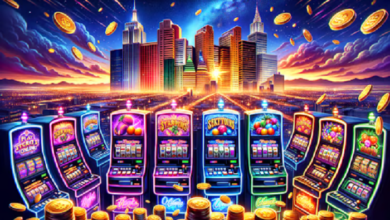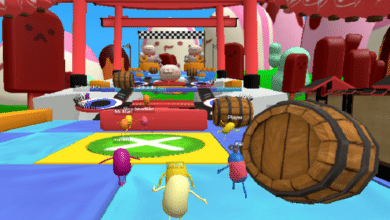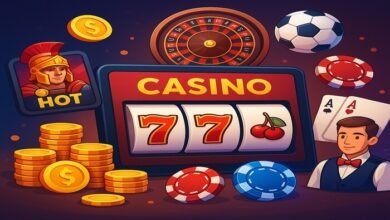How Streaming, Gaming, and Social Platforms Compete for Your Time

We all have the same 24 hours in a day. Yet lately, it feels like we have less and less time. That’s not an illusion—it’s a reflection of how aggressively digital platforms are competing for your attention. Whether it’s watching a show, chatting with friends, or diving into an interactive game, there’s always something nudging you to stay online just a bit longer. You could be watching a stream, playing the 32 cards casino game, or scrolling through feeds—and it all adds up quickly.
These platforms aren’t just offering content. They’re built to hold your focus, shape your behavior, and keep you coming back.
The Economy of Attention
Attention is the currency of the internet. The more time you spend on a platform, the more data it collects, and the more ads it can show. That means your time is valuable—not just to you, but to the systems behind every app and site you use.
Streaming platforms want you to binge one episode after another. Games often offer rewards for daily logins. Social media keeps the content endless so you never quite feel done. None of this is by accident. It’s all designed to grab slices of your day and stretch them.
The challenge is that there are now more digital platforms than ever, all fighting for those same minutes.
Why Streaming Still Works
Streaming platforms were some of the first to benefit from people spending long hours online. With on-demand access to shows, documentaries, and movies, they gave users what traditional TV couldn’t: control. You choose what to watch and when.
But now, even streaming is changing. Platforms use algorithms to suggest what’s next. Autoplay starts the next episode without asking. Previews roll as you scroll. It’s smooth, but it also means you’re being nudged constantly to stay longer.
Content is also being shaped by data. What gets watched the most often influences what gets made. That can lead to entertainment that’s easier to consume, but less risky or original. It keeps you watching, but doesn’t always challenge your attention in meaningful ways.
Games: Designed to Keep You Engaged
Gaming platforms operate differently. They don’t just want you to watch—they want you to act. Tap, move, solve, spend time. Whether it’s a casual mobile game or a deep strategy challenge, the game evolves based on your input.
This engagement is powerful. Games can become a part of your routine. They offer rewards for regular play, limited-time events, and social features that build habit. You’re not just playing for fun—you’re also unlocking levels, earning points, keeping up.
Unlike streaming, games require more of your mind. They keep you alert and focused. But they can also eat up hours without you noticing. The feeling of progress and immersion can be rewarding—and addictive.
Social Media: The Infinite Scroll
Social platforms are in a league of their own. They combine elements of both streaming and gaming. You scroll through video, read text, react to content, and post your own. Every action feeds into an algorithm that tries to predict what will keep you scrolling.
This constant refresh of content makes social media feel alive. There’s always something new. But it also leads to fragmented time. You check a few minutes here, a few minutes there, and suddenly an hour’s gone.
The biggest trick social platforms pull is making every moment feel important. Likes, replies, updates—they all create small feedback loops that reward you for checking back in. It’s hard to resist, especially when everyone else is doing it too.
Who Wins? Who Loses?
In a way, all these platforms win. They each carve out their share of your time. But the person using them—maybe you—can end up losing control. It becomes harder to focus, harder to find space for quiet, harder to disconnect.
There’s also overlap. You might watch a stream while checking social media. Or play a game while listening to music. Multitasking becomes the norm, and attention gets spread thin. It feels productive, but often it just adds to mental noise.
Finding Balance in a Digital World
The key isn’t to quit these platforms. They can offer joy, connection, and creativity. But it’s worth asking: who’s deciding how I spend my time?
Simple habits can make a difference. Turn off autoplay. Limit notifications. Set timers. Block out offline time. Pay attention to when you’re truly enjoying something—and when you’re just filling a void.
Digital tools are here to stay. The challenge is using them on your terms, not letting them use you.
Final Thoughts
Streaming, gaming, and social platforms aren’t bad. They’re just efficient. They’re designed to be compelling, responsive, and hard to leave. That’s what makes them popular—and powerful.
But the more we understand how they work, the better we can manage our own time. In a world where everyone’s competing for your attention, learning to guard it might be one of the most important skills of all.





